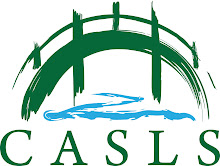From http://www.ascd.org/publications/newsletters/education-update/may13/vol55/num05/In-the-Classroom-with-Liliana-Aguas@-Capitalize-on-Cognates.aspx
In the Classroom with Liliana Aguas: Capitalize on Cognates
Liliana Aguas
May 2013
In school, as an English language learner struggling to read in English, I discovered that many of the "tricky" words that puzzled me reminded me of words I already knew in Spanish. This was especially true when I read my science and math textbooks: I recognized the words pyramid (pirámide) and asteroids (asteroides). When I realized how many words I actually knew and understood even while reading English, I thought that I had some kind of "magical power." In fact, it felt like I was getting away with something, so I never told any of my teachers about my useful reading strategy.
To this day, I still use this strategy and credit this magical power as part of my decision to major in science in college. What I didn't know back in elementary school was that my magical power has a name and involves the recognition and use of cognates. Cognates are words that mean the same in English and Spanish and are often pronounced and spelled in a similar way. In fact, 30–40 percent of all words in English have a similar word in Spanish. As teachers, we can take advantage of the similarities between languages and capitalize on cognates.
Read on for Ms. Aguas’ top four classroom activities for teaching and reinforcing cognates: http://www.ascd.org/publications/newsletters/education-update/may13/vol55/num05/In-the-Classroom-with-Liliana-Aguas@-Capitalize-on-Cognates.aspx
June 8, 2013
Subscribe to:
Post Comments (Atom)





No comments:
Post a Comment
Note: Only a member of this blog may post a comment.